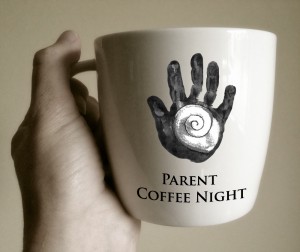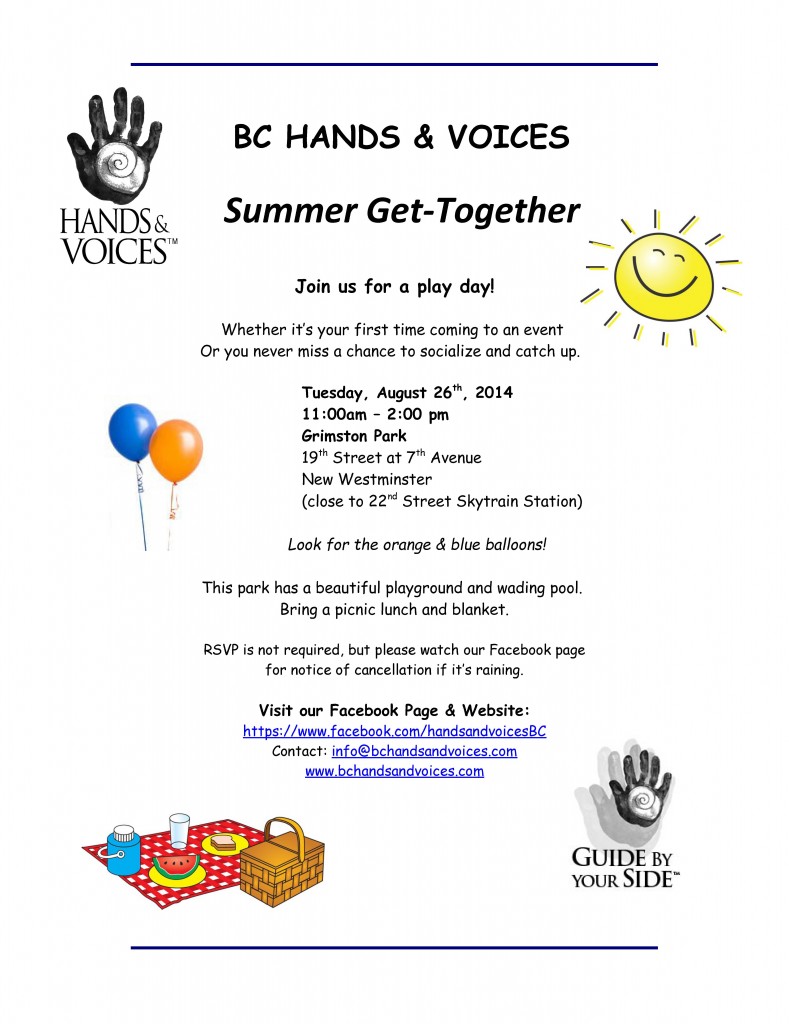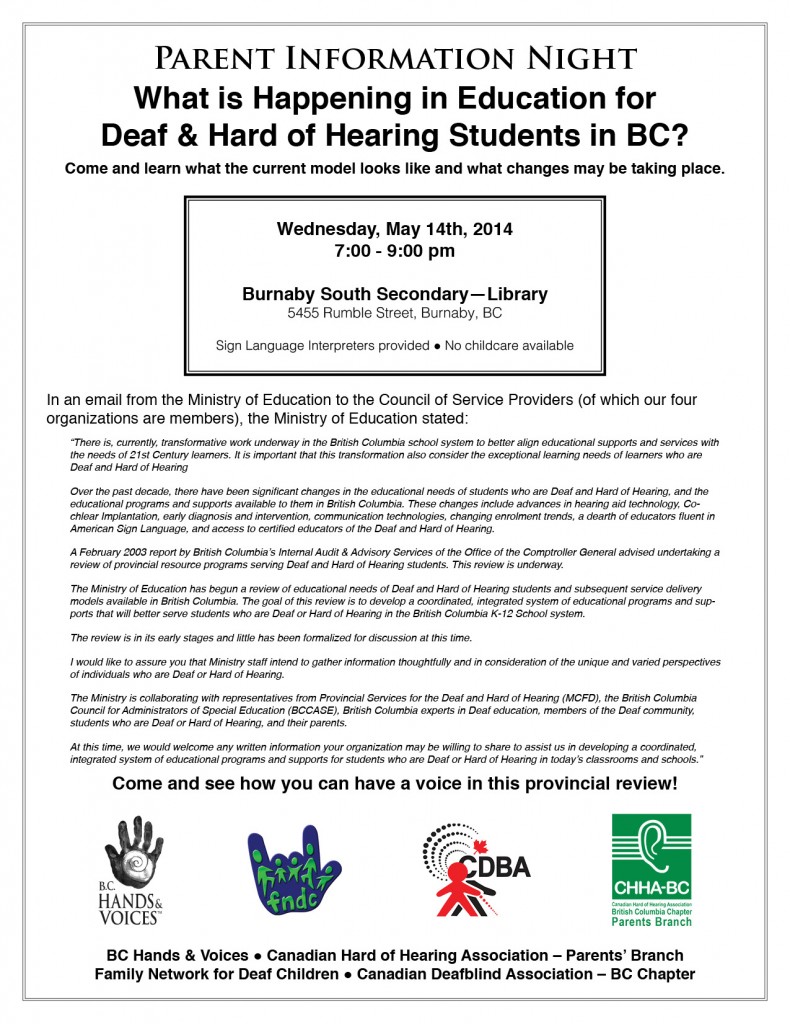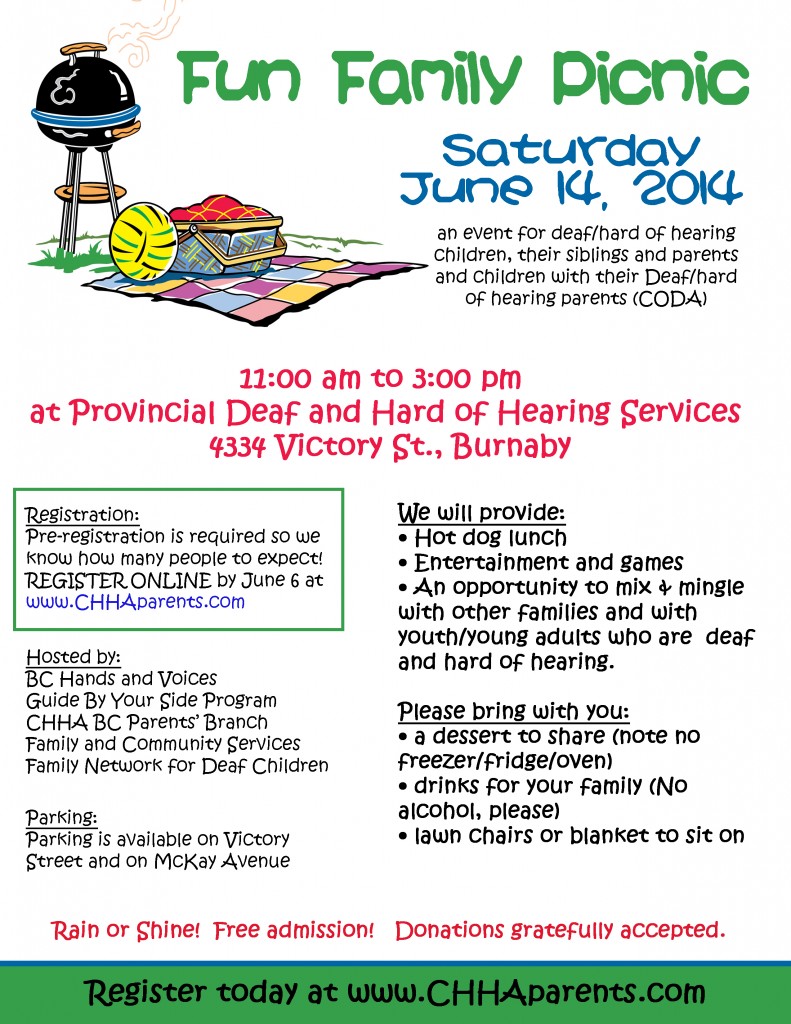By Gina Cooper-Watt, Campbell River, BC
I admit it, I am a research junkie. When my daughter was born, I became a “Google Mother.” As I sat at the computer, rocking Sara in one arm and perusing the internet with my other hand on the mouse, I would read fascinating articles on parenting, and experiment with many of them.
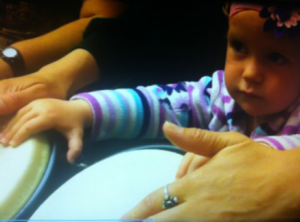
One particular parenting site claimed that exposing your baby to classical music could stimulate her brain and make her smarter. (“The Mozart Effect”- a theory which has now been debunked.) My daughter spent many hours each day playing and listening to Mozart and other classical musical legends, all the while not hearing anything, and possibly wondering why mommy was dancing around the house with a proud flair at the thought of her brainchild becoming a famous gifted “something or other!!” Oh, the irony.
This experience etched itself in my mind, however, and shortly after my daughter was identified with profound hearing loss, I once again found myself Googling. This time, I was researching music and deafness. I came upon a very interesting article describing how Music Therapy can play a role in the speech development process for the children with hearing loss, published by our city’s Music Therapy Association.
Of course, I enrolled my daughter in private music therapy lessons at the association, group music therapy classes at our Outreach Organization, a playgroup where singing played a part in the structure of the class, and a toddler dance class. I also found an online support group with a member who happened to have a lot of knowledge with regard to cochlear implants and music. He suggested flooding your child’s ears with songs that had long, deep base lines such as Barry White and Isaac Hayes as this style of music has less disturbing factors and interference than other songs. I became an official “Pageant Mother” to my somewhat concerned yet curious family members. Could all of this really help Sara learn to speak more effectively?
Music therapy can lend itself to traditional auditory training by providing an alternative and pleasurable environment in which to help a child learn to listen. Both speech and music contain pitch, tone, rhythm, timbres, duration and intensities. Children can learn how to distinguish, identify and understand these sounds with careful exposure to them. Music therapy can become a motivating tool and can enliven speech therapy sessions! Furthermore, music therapy can also be effective in teaching children who use equipment for listening how to pay attention to sounds, the differences in sound, recognizing objects and events from their sounds, and how to use hearing to determine the distance and location of sound.
My daughter’s curiosity level definitely peaked while exposed to all the different musical instruments, during her private and group music classes. She would stare at, and try to mimic the music therapist’s mouth movements as she sang at various levels. The group music class certainly provided a fun family environment where all we parents would gather around the music teacher, dance with and sing to our children, take turns playing an instrument, sing a line of a song and listen to the sounds of everyone’s differing voices.
Music facilitates family bonding! “Dancing with the Stars” would play every Thursday evening while daughter and mommy would take turns as Daddy’s dancing partner. We would do our best to sing along to every song, keep the beat and find the rhythm to every dance style. We learned as well, through many humorous evenings, that my partner is a wonderful baritone and I am a natural at the Rumba. We now tend to leave the singing to daddy and the dancing to mommy to best offer our natural ‘gifts’ to our child.
Music can be a wonderful way to help children learn routine transitions and help prepare them for a sound sleep as well. Singing bedtime stories to your child can help your child to not only recognize and attach meaning your voice but also teach self-soothing techniques and emotional connection through tone of voice. Music can induce physical relaxation and help set an emotional tone of peace and well-being needed for a good night’s sleep.
Rhyming is also essential to speech, language and literacy development. Songs such as The Wheels on the Bus, Hey Diddle Diddle and the Itsy Bitsy Spider all incorporate rhyming and repetition that help develop an awareness of speech sounds. By singing songs loaded with early developing sounds such as p, b, t, d, k, g, and m, you can possibly give your child a ‘head start’ to great listening and speaking skills.
At two years of age, my daughter’s attention span would only last half an hour but it certainly gave us enough time to expose her to a wide range of sounds, help to stimulate the auditory nerves, and hopefully set a foundation for learning to listen. I also discovered through research that deaf people not only enjoy but benefit from music. Evelyn Glennie, a famous deaf percussionist, and subject of the fascinating film “Touch the Sound, explains how she “feels” music through its touch and vibration.
While I don’t claim that music therapy is a critical component in the speech development process, in my opinion and personal experience it definitely was a stimulating experience.
You don’t have to become a “Pageant Parent” either. That phase was short-lived with me as I do not want to burn out in this journey. Learning is an ongoing process and now we, as parents and partners, involve our daughter in just one ‘extra-curricular’ activity per season to enhance speech therapy.
What I really liked about our experience with Music Therapy is that it made therapy fun. As a cochlear implanted child, with years of communication therapy ahead of her, I am really striving to ensure my daughter’s childhood is filled with happy, fun memories, not a lot of tedious therapy sessions and ‘forced’ communication training. To me, this cochlear implant tiourney and all of its therapy and training is about being as natural and as fun as possible.
